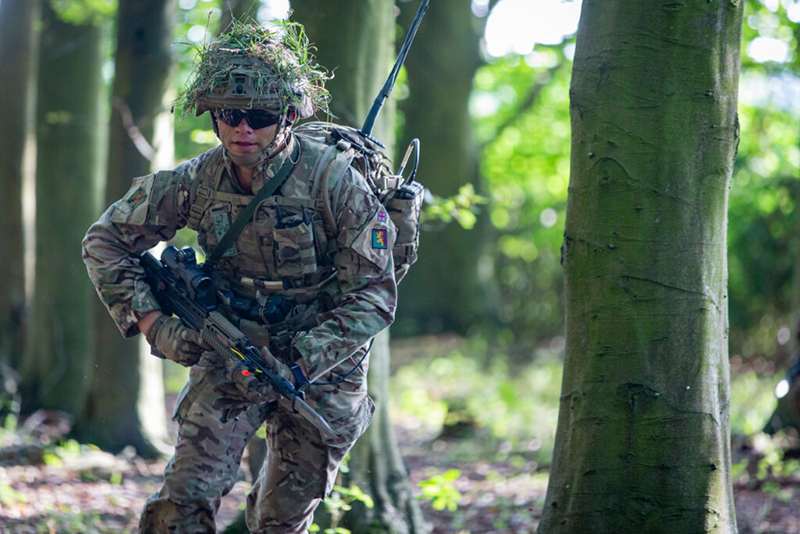Military simulation offers invaluable insights into how different strategies may play out in real-world situations. Through detailed analysis based on performance data collected during training sessions or wargames, defence personnel can develop more efficient strategies and anticipate potential outcomes, giving them an advantage over their opponents should the need arise. Additionally, this data can help identify flaws in existing strategies so that new ones may be developed more quickly than would otherwise be possible in real-world scenarios. Let’s take a closer look at how military simulations can help us develop better strategies.
How Military Simulation Works
Military simulation uses gaming principles to simulate real-world scenarios as closely as possible. By using specialised software and hardware, these simulations can generate realistic environments that allow participants to experience a wide range of tactical and strategic options without actually being in a real-world situation. This allows for more accurate analysis as the data collected is not just theoretical but also provides an indication of how things would play out in actual combat situations. The simulations can be adapted according to specific objectives or requirements making them an invaluable tool when it comes to developing new strategies.
The Benefits of Military Simulation
Military simulations provide the opportunity to test out potential strategies without any of the risks associated with executing them in real life. This allows defence personnel to gain valuable insights into strategic options before ever committing resources to them. Additionally, military simulations offer the ability to analyse substantial amounts of data quickly and accurately, allowing for a comprehensive After Action Review (AAR) of how different approaches may play out in various conditions and scenarios. This helps personnel identify key areas for improvement that are not immediately obvious during traditional training sessions or operations planning sessions.
Collecting data
By running multiple simulations with varying parameters and outcomes, defence personnel can collect data on each iteration and use it to determine which approach is most efficient and effective under specific circumstances and conditions. This data can then be used to inform future decisions or alter existing plans as needed, ensuring that personnel are as prepared as possible for whatever might come their way. It also allows for a greater understanding of the consequences of certain actions so that they can be avoided if necessary or embraced if beneficial in any given situation.
Reducing risk
Military simulation provides a platform where experimentation is encouraged without fear of failure or retribution because no actual lives are at risk; this creates an environment where innovative ideas can be explored without the risk associated with trying something new in the field. This encourages creativity among defence personnel and allows for more informed strategising than would otherwise be possible given limited resources.
The Power of Simulation Gaming
Simulation gaming has been used since the 1950s as a way to understand and analyse different strategies in a controlled environment. This allows for more reliable results than could be obtained through actual field tests due to the ability to control variables such as terrain, weather conditions, and time. Additionally, with simulation gaming there is no risk of human life or equipment being damaged during testing sessions.
The Benefits of Wargaming
Wargaming is a type of simulation game designed for military training purposes, but also used for recreation. These games allow teams to simulate different scenarios so that they can practice their tactical strategies without having to put themselves in harm’s way. Wargaming also provide valuable information about how teams interact and what strategies work best against certain types of opponents and scenarios. This data is then used to develop more efficient strategies for future encounters with those opponents.
Using Performance Data
Performance data collected from simulations and wargaming provides invaluable insights into potential outcomes before they happen in real-world situations. This gives defence personnel a significant advantage over their opponents by allowing them to anticipate potential outcomes before they occur and adjust their plans accordingly. The data also helps identify flaws in existing strategies so that new ones may be developed more quickly than would otherwise be possible in real-world scenarios.
Simulation and wargaming offer defence personnel a unique opportunity to test out potential strategies without any of the risks associated with executing them in real life. Not only do they reduce risk, but also provide valuable insights into how teams interact and what strategies work best against certain types of opponents. Additionally, performance data collected from simulations can be used to develop more efficient strategies for future encounters with those opponents. By leveraging these tools, military personnel can gain an advantage over their adversaries by anticipating outcomes before they happen and adjusting plans accordingly. Ultimately, simulation is an invaluable tool that helps ensure mission success while keeping our military personnel safe.
Read more on this in Enhancing Decision Making in the Field of Combat with Military Simulation
Do you want to learn more about the latest Defence training and education technologies, DSET has something for everyone. Register to attend here.
Image Credit: Defence Photography


